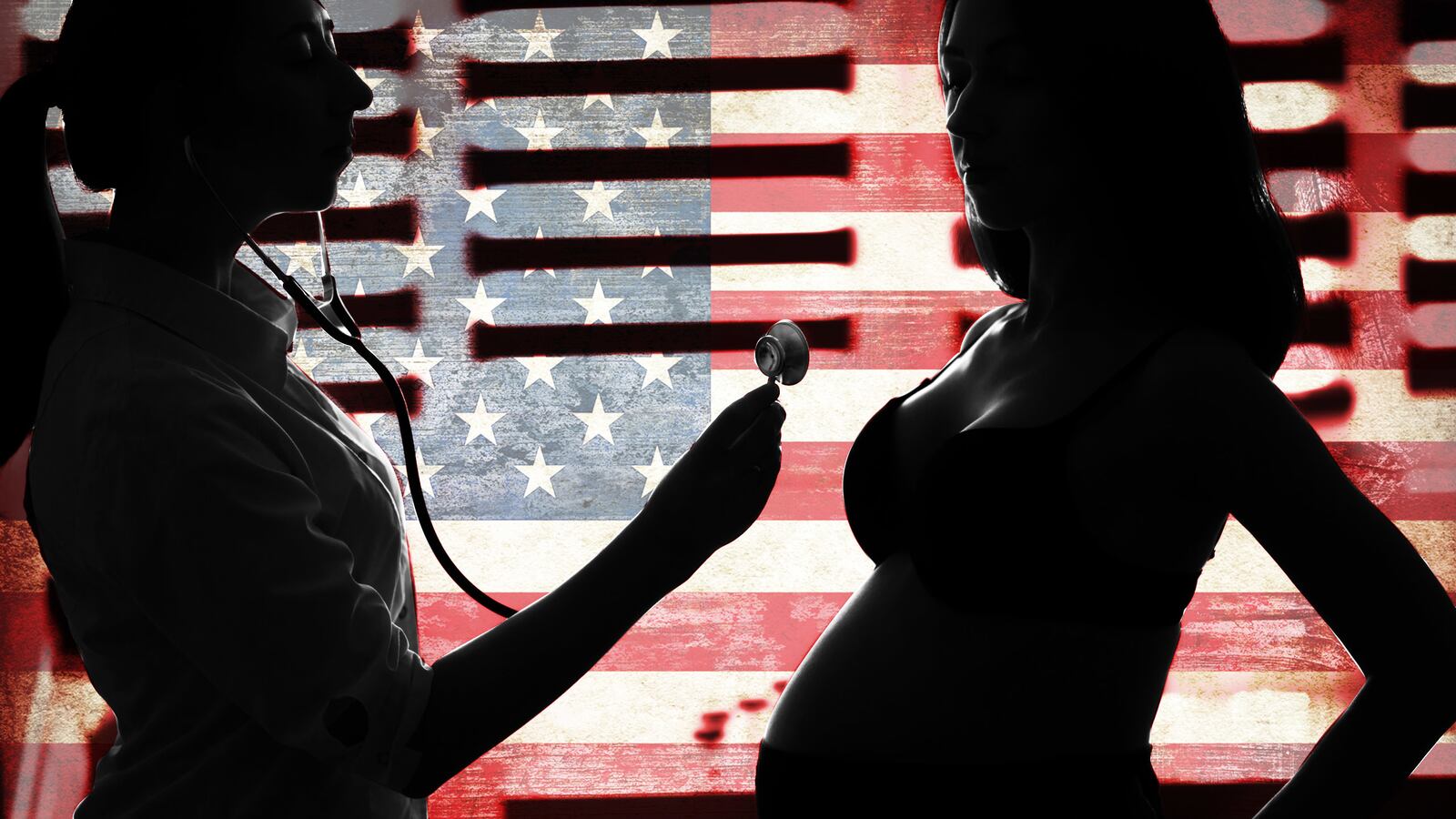At a 1987 meeting of anti-abortion leaders, President Ronald Reagan called for his surgeon general, C. Everett Koop, to prepare a report on the medical and psychological effects of abortion on women. Though Koop was an ardent and vocal foe of abortion, he responded to the assignment he later described as the “final bone that [Reagan] threw to the pro-life people” dispassionately, with a determination that the current science was flawed and a call for better research.
“The scientific studies do not provide conclusive data,” Koop wrote. A study that would be “above criticism,” Koop said, would be one that included the psychological effects of pregnancy, “whether carried to delivery, miscarried, or terminated by abortion.” It would take “a great deal of time,” and millions of dollars.
Nearly 30 years later, researchers say they’ve completed the task.
For the last five years, researchers at the University of California, San Francisco, have followed nearly 1,000 women in 21 states who sought abortions. Women were broken up into two subgroups: those who received abortions, and those who were turned away because they were beyond the state’s legal gestational limit. The women who were turned away were further split into women who ultimately miscarried or accessed abortion through other means, and women who carried their pregnancies to term. Every six months, interviewers surveyed the women to assess their mental health.
“We find that abortion does not adversely affect women's mental health over five years,” M. Antonia Biggs, a social psychologist at UCSF and the lead author of the new report published in JAMA Psychiatry, told The Daily Beast. “But denying women an abortion has negative effects to their mental health and well-being in the the short term.”
According to Biggs’s team’s research, women who have abortions are at no risk of developing depression, anxiety, or low self-esteem related to it. However, those who were denied the procedure experienced increased anxiety and lower self-esteem immediately after being turned away.
“While some have argued that while we might expect a surge in mental-health problems following an abortion, we actually do not find that. We actually find a general improvement in women’s mental health and well-being over time. And we believe the study provides the best evidence to date,” she said.
The women who were turned away and ultimately did not give birth reported the most anxiety, and lowest self-esteem and life satisfaction one week after being denied an abortion. In their findings, the researchers posited that the initial distress was possibly a result of being turned away while the reasons for seeking an abortion—financial stress, partner issues, existing children, among them—remained. Moreover, the women who were turned away were faced with an additional challenge: traveling to another facility, perhaps in a different state, and raising additional money to do so.
“At the first interview, many of these women reported that they were still trying to access abortion services,” the researchers reported.
But by six months to a year, both groups’ mental health and well-being reports had converged—meaning there seems to be no long-term psychological effects of abortion or abortion denial on women.
“Which was a surprise,” Biggs said. “We might have expected more long-term effects, and I think this speaks to how resilient women are and how they manage to cope with their circumstances.”
The results add to an existing body of scientific research that finds no increased risk of mental-health problems following an abortion. And the greater finding—that being denied an abortion may be more detrimental to women’s mental health than allowing women to obtain their wanted procedures—could be problematic for red states that have in recent years passed laws mandating women seeking an abortion be counseled on the procedure’s harmful psychological effects. These laws rely on the kind of junk science that Surgeon General Koop decried decades ago.
Nine states—Kansas, Louisiana, Michigan, Nebraska, North Carolina, South Dakota, Texas, Utah, and West Virginia—mandate women receive counseling, stressing rare or scientifically unproven negative emotional responses, before they can access the procedure.
“Our research shows they aren’t based on evidence,” Biggs said. “I would hope our laws and Supreme Court decisions would be based on the best evidence we have.”
In Louisiana, the most recent state to mandate such counseling, women are provided with a pamphlet detailing information on the the “emotional side of abortion.”
Written by a group that included two anti-abortion lawyers, two anti-abortion counselors, and zero abortion providers, the booklet reads: “Some women have reported serious psychological effects after their abortion, including depression, grief, anxiety, lowered self-esteem, regret, suicidal thoughts and behavior, sexual dysfunction, avoidance of emotional attachment, flashbacks and substance abuse. These emotions may appear immediately after an abortion or gradually over a longer period of time.”
Counseling, it continues, is “very important” before an abortion, The pamphlet then directs women to a number of pregnancy crisis centers, staffed with anti-abortion activists whose mission is to talk women out of having the procedure.
Last year while writing about the unscientific information doctors in states with restrictive abortion laws are forced to give their patients, I spoke to Leah Torres, an OB-GYN in Salt Lake City, where counseling on abortion’s mental and physical health risks is required 72 hours before the procedure can be performed.
“No one has to go through state-mandated information for a colonoscopy,” Torres told me at the time. “No one has to go through state-mandated information for a prostate removal surgery. No one has to go through state-mandated information for breast augmentation. None of these other procedures require a physician to read inaccurate information to their patients. It doesn’t happen anywhere else in medicine.”
In order to act ethically as a physician, Torres said she has to follow certain sections of state-mandated counseling with “This does not exist.”
In the face of UCSF’s study, state legislators passing such laws in the name of women’s health may want to revisit Reagan’s surgeon general’s advice.
“I separate ideology, religion and other things from my sworn duty as a health officer in this country,” Koop told The New Republic in 1988.






